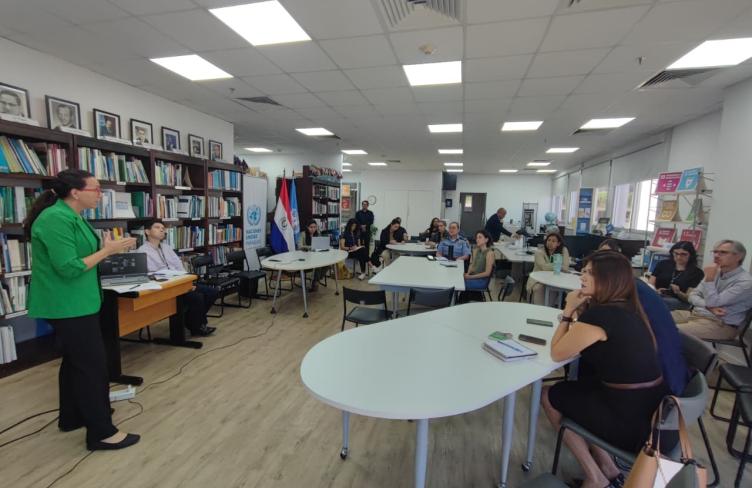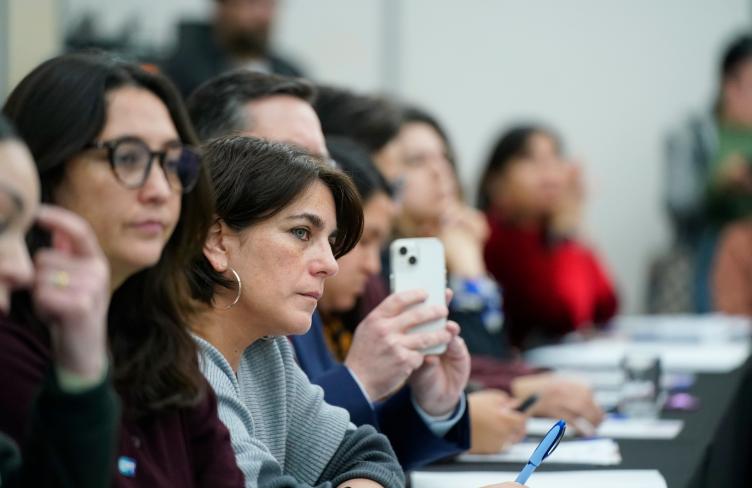
When we talk about torture prevention, one of the first groups that come to mind are independent oversight bodies - known as National Preventive Mechanisms - and the challenging work they do to monitor places of detention and uphold the rights of those deprived of liberty. But we can struggle to recognise that preventing torture and ill-treatment is a joint responsibility.
The Optional Protocol to the Convention against Torture (OPCAT) makes this clear: States have the primary responsibility to prevent torture and ill-treatment. However, when different stakeholders come together, it is possible to rethink approaches and develop new strategies to prevent torture and ill-treatment.
Promoting the value of collaborating for torture prevention was the focus of the APT’s visit to Panama from 27 November to 6 December 2022, as well as the need to adopt differentiated approaches for women, LGBT+ persons and persons with disabilities deprived of liberty when adopting a preventive approach.
Strong cooperation between all actors in the area of torture prevention is essential in order to drive long-term change in Panama. It was incredibly valuable to meet with different stakeholders and discuss opportunities to promote collaboration.
Sara Vera López, APT Senior Adviser for Latin America and Oversight
Civil society organisations: a key role in following up on recommendations
Civil society organisations have a key role to play in torture prevention, especially following up on the implementation of recommendations made by international bodies, including the UN Subcommittee on Prevention of Torture (SPT). They can also help identify and draw attention to the risks of torture and ill-treatment in different detention settings and with different groups of detainees. As part of the mission, the APT met with civil society organisations to discuss the challenges and opportunities for joint work on torture prevention.
Judges: Delivering criminal and penitentiary justice with differentiated approaches
The consequences of torture and ill-treatment are different for each person, as are the risks. Persons with disabilities, and in particular women with disabilities, face heightened risk of torture and ill-treatment. It is therefore necessary to provide justice from differentiated approaches to address their needs, with alternative measures to imprisonment applied when the possibility arises. During the visit, the APT had the opportunity to hold - together with the Gender Unit of the Panamanian Judiciary - a seminar on persons with disabilities and deprivation of liberty. The seminar was attended by judges, public prosecutors, migration authorities, public defenders and other relevant actors.
National Mechanism for the Prevention of Torture: Preventive mandate from the perspective of gender and LGBT+ persons
When in contact with the criminal justice system, women and LGBT+ persons face particular risks of torture and ill-treatment; for example, sexual and gender-based violence. During the mission, the APT led a series of activities to support the NPM and key staff of the Ombudsperson's Office develop knowledge and tools to implement a gender-sensitive approach to the specific risks faced by women and LGBT+ persons deprived of liberty.
"These APT initiatives in Panama generate new forms of advocacy and awareness-raising on prevention issues with key actors in disseminating issues related to the NPM's mandate," said Fernando Wing, the Director of the National Preventive Mechanism for the Prevention of Torture.



